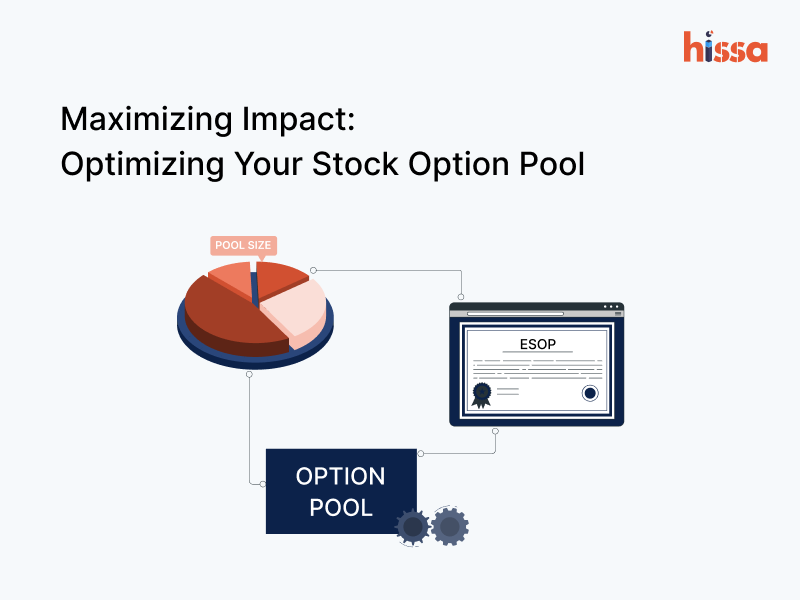With the ever growing noise around ESOPs, recording the ESOP details accurately in the company’s books is imperative. This is because a small error could cause a huge setback for the company.
In several instances, companies have faced penalties from authorities for failing to comply with regulations. One such case involved a company incorrectly classifying the value of its stock option grants as a contingent liability, claiming that the grants were issued at a discounted rate. However, the Income Tax authorities disallowed this claim, ruling that the amount should be treated as an expenditure.
Often companies have also been asked by their statutory auditors to restate prior years’ financial statements, if they are not aligned with the accounting standards for ESOP accounting/ disclosures.
To steer clear of such errors that could lead to extensive financial statements revisions down the road, it’s a smart move to conduct periodic ESOP audits. By staying compliant with all statutory requirements, you ensure that your financials present the correct figures without any hassles.
What is an ESOP audit and who should consider conducting an ESOP audit?
ESOP audit is the process of reviewing the financial statements and records relating to ESOPs to verify the accuracy of the financial statements, identifying any non-compliance, misstatements, or omissions.
The audit requirement is primarily based on- the type of plan adopted, the residential status of the recipient of grants, value of the company, number of eligible employees covered under a plan, type of vesting, form of liquidity provided(if any), expenses involved in administering the plan and so on.
Evaluate the need for an ESOP audit now with this quick assessment!
Why should companies conduct an ESOP Audit?
Being non-compliant attracts substantial financial penalties, potentially up to 25 lakhs and also puts the company at a risk of legal consequences, financial losses, and the need to redo the entire audit, resulting in additional costs and resource allocation.
Few examples of penal provisions relating to ESOP non-compliance include:
- Companies Act
If a company violates the terms and conditions stated in the approved ESOP scheme when offering stock options to its employees, disregards the prescribed secretarial standards during the formation of the ESOP committee, or misappropriates loans intended for the implementation of ESOP for other purposes, it may face penalties ranging from INR 25 thousand to 25 lakhs.
- Foreign Exchange Management Act (FEMA)
If a company fails to submit the required ESOP form, it may face penalties of a fixed amount of INR 7,500 along with an additional charge of 0.025% of the amount for each year of delay.
- Accounting Standards
If a company disregards the guidelines related to share-based payments as outlined by Ind AS, it could be subject to a penalty of up to INR 3 lakhs. Similarly, non-compliance with share-based payment accounting standards under IGAAP (Indian Generally Accepted Accounting Principles) can result in penalties of up to INR 3 lakhs.
How will an ESOP Audit help?
Some of the commonly seen errors relating to ESOPs in the company’s financials include:
- Grant details are not in alignment with the ESOP Plan.
- Ineligible employees have been granted stock options.
- Incomplete full and final settlements for employees who have left the company.
- Options have vested based on time while the plan is related to performance vesting.
- Options lapsed have not been added back to the pool.
- Buyback of options have not been accounted for in the books correctly.
- ESOP expenses have not been booked in the P&L.
- Non-compliance with accounting standards like IGAAP or Ind AS.
- Failure to make necessary statutory filings under Companies Act, FEMA, and Income Tax.

ESOP audit ensures:
- Compliance with Regulatory Requirements: Auditing will help provide recommendations to take corrective actions and be compliant with the provisions of law.
- Identification of Errors and Fraud: Any omissions made in the books of accounts, potential misstatements can be detected and rectified early on.
- Assurance for Stakeholders: Conducting audit will demonstrate the company’s commitment to being transparent and compliant, building credibility in the minds of the investors and employees. This could lead to attracting financial opportunities and providing assurance to employees.
- Improved Internal Controls: On time evaluation of the internal procedures and risk management systems can help facilitate smooth operations of ESOP transactions.
- Enhanced Decision-Making: Accurate and audited financial statements resulting from the audit provide reliable data for decision-making. The absence of errors and fraud ensures that decisions are based on factual information, leaving no room for any ambiguity.
- Facilitation of ESOP Transactions: Establishing a smooth process that streamlines ESOP transactions at the very beginning will save time in the future in case of having to redo everything if there are discrepancies.
- Identify risk exposures due to non-compliance: Potential risks stemming from non-compliance can be identified and mitigated.
- Benchmark against market practices: Assessing the current ESOP practices against market standards helps offer recommendations to improve and align the ESOP program with market practices, enhancing the success and effectiveness of the program.
- Governance Framework: Audit will ensure adopting accurate compensation accounting practices and compliance checks. Customizing the governance framework to the company’s ESOP program will ensure a seamless ESOP experience in the future and minimize any potential compliance-related issues.
What is the scope of an ESOP Audit?
The ESOP audit scope can be broken into:
a. Review of the company’s ESOP policy and plan documents
i. Assessing compliance with applicable laws and regulations.
ii. Evaluating the ESOP grant and vesting process in accordance with the ESOP Plan.
Iii. Examining the ESOP documentation and records.
b. Review of the ESOP valuation methodology
i. Assessing the approach and methodology used to determine the value of ESOPs.
c. Assessment of the financial impact of ESOPs
i. Examining the financial statements to identify proper disclosure of ESOP expenses.
ii. Assessing the accuracy in booking and accounting treatment of ESOP.
The success of your ESOPs relies on the accuracy and reliability of its process. So, make ESOP audits a priority for your company to safeguard your financial integrity, maintain stakeholder trust, avoid penalties and pave the way for long-term success.






